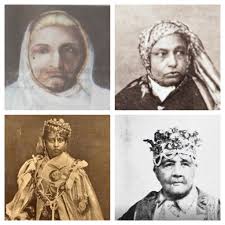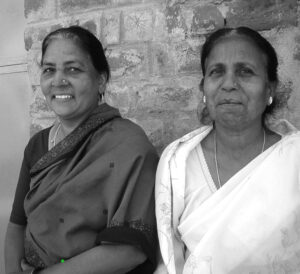To mark International Women’s Day today, Sunday March 8th, we are celebrating the women of Bhopal who have been at the forefront of the relief efforts and the fight for justice since the night of the gas leak in 1984. For the last 35 years these women, many of whom are survivors themselves, have not only refused to allow corporations and governments to bury justice in Bhopal, they have also worked tirelessly to heal and unify the affected community through medical initiatives and community care. They are the protestors raising awareness and refusing to allow the world to forget about Bhopal; the lawyers fighting the ongoing legal battle in the courts; the doctors caring for survivors at the health clinics; the scientists gathering data on the toxins and chemicals still reaching new wells and new wombs; the community health workers and volunteers supporting survivors’ wellbeing in their homes and neighbourhoods; the staff and gardeners at Sambhavna building a more sustainable future; and the mothers caring for their loved ones and bringing their children to the clinics for treatment. Among these countless thousands of women, we wish to share the stories and achievements of a few individuals who we feel exemplify the unquenchable spirit of the women of Bhopal.
The Begums of Bhopal
 Bhopal is a city in which women have played an important historical role even prior to the gas disaster. It is unique among the cities of India in that it was ruled by a dynasty of women, collectively known as the Begums of Bhopal, for more than a century of its history. The first of the four female rulers of the city, Qudsia Begum, declared her daughter the heir to the throne and assumed the role of regent following the death of her husband, Nawab Nazar Muhammad Khan, in 1819. This show of independence was virtually unheard of among women of the period, and demonstrated that Islam does not exclude women from holding political power. She was succeeded by her daughter Sikandar Begum in 1847, and the succession continued in the female line for another two generations, until being passed back to a male heir in 1926. The Begums of Bhopal were champions of women’s independence, education, and rights. The city flourished under their rule and they continue to inspire new generations of women today.
Bhopal is a city in which women have played an important historical role even prior to the gas disaster. It is unique among the cities of India in that it was ruled by a dynasty of women, collectively known as the Begums of Bhopal, for more than a century of its history. The first of the four female rulers of the city, Qudsia Begum, declared her daughter the heir to the throne and assumed the role of regent following the death of her husband, Nawab Nazar Muhammad Khan, in 1819. This show of independence was virtually unheard of among women of the period, and demonstrated that Islam does not exclude women from holding political power. She was succeeded by her daughter Sikandar Begum in 1847, and the succession continued in the female line for another two generations, until being passed back to a male heir in 1926. The Begums of Bhopal were champions of women’s independence, education, and rights. The city flourished under their rule and they continue to inspire new generations of women today.
Union Carbide’s gas disaster has had especially devastating consequences for Bhopal’s women. Among the pregnant women affected by the gas, nearly half would go on to lose their babies and many of the children who survived would be born with deformities or other persistent health conditions. These effects were not limited to a single generation: samples taken in 2002, nearly eighteen years after the disaster, showed that the breastmilk of mothers from the affected area contained lead, chemicals and heavy metals, as a result of exposure to toxic groundwater after the chemicals from the factory seeped into the soil. Menstrual irregularities and early onset menopause are common symptoms of exposure, which also carries high risks of cervical cancer. Many of the women who had never previously been in employment due to the traditional purdah system were forced to go out and seek work to support their families after their partners were killed or crippled by exposure to toxic gas. In all, thousands of women were left to care for families ravaged by the disaster, often supporting multiple dependents with disabilities and serious illnesses.
Rashida Bee and Champa Devi Shukla
 One such woman was Rashida Bee, who was forced to secure a job in a stationery centre to help support her family in the years following the disaster. She would go on to meet Champa Devi Shukla, another employee at the factory, in 1986, and the two women together founded an independent union to fight for better labour conditions and wages. In 1989 they organised the first padyatra (march) of more than 100 women and children to Delhi, a distance of 469 miles, to demand a wage rise and better working conditions for women. Their demands were eventually met, and they succeeded in securing better wages and other concessions for women working in the factories.
One such woman was Rashida Bee, who was forced to secure a job in a stationery centre to help support her family in the years following the disaster. She would go on to meet Champa Devi Shukla, another employee at the factory, in 1986, and the two women together founded an independent union to fight for better labour conditions and wages. In 1989 they organised the first padyatra (march) of more than 100 women and children to Delhi, a distance of 469 miles, to demand a wage rise and better working conditions for women. Their demands were eventually met, and they succeeded in securing better wages and other concessions for women working in the factories.
While continuing their fight for the rights of working women, Rashida and Champa also committed themselves to the fight for justice on behalf of all the survivors of the disaster. Their goal was to ensure that Union Carbide, and later Dow Chemical following their buyout of UCC in 2001, would be held responsible for their crimes. Over the next eighteen years the two would organise and participate in a series of protests and hunger strikes and even attend DOW shareholder meetings to advocate for Bhopal survivors, as well as pursuing justice through the courts.
In 2004 the pair were awarded the Goldman Environmental Prize for their efforts to bring Bhopal into the global spotlight and their leadership of the survivor movement. They decided to use the $125,000 prize fund to found a free clinic to treat children affected by gas and toxic water exposure, naming it ‘Chingari’ (‘spark’). The clinic opened in 2006 and now regularly treats more than 200 children with disabilities and other developmental and behavioural conditions. They have since established a prize of their own, The Chingari Prize, specifically for women activists who are following a similar path and fighting corporate negligence and corruption elsewhere in the world.
Now, more than three decades since the disaster, Rashida and Champa continue their work at Chingari on behalf of the survivors. A journey that began with political activism and protests on the ground and developed into a battle for justice in the courts, has now grown into a project focussed upon healing and community care. Both women lost multiple members of their families to the disaster and still suffer from health conditions as a result of their own exposure to the gas. Despite their poor backgrounds, ill health, and the loss they have suffered, they continue to dedicate their lives to helping others and ensuring that nothing like the Bhopal disaster ever occurs again.
These women have shown that the fires of hardship forge unbreakable bonds that can be used to bring about change and healing in the world. They epitomise values shared across a whole community of women, both in Bhopal and abroad, who are unified by their compassionate efforts to overcome the suffering wrought by the disaster and convert it into a message of hope for the future. For those who have lost everything to still seek to help others is as remarkable as it is inspiring.
For the remainder of Women’s History Month, we will be posting a blog a week about the other women who have fought and continue to fight for the people of Bhopal.


